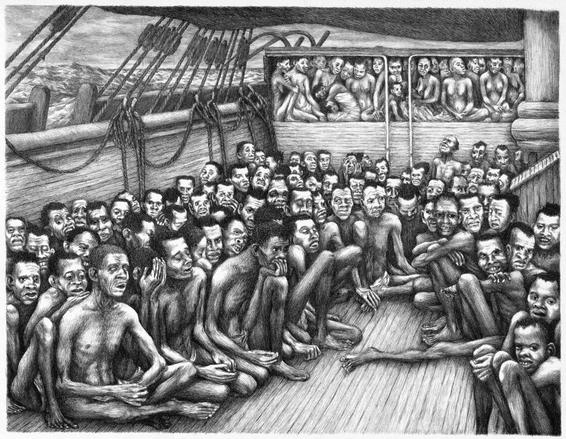Register HERE
I’m embarrassed to say that I already interviewed Lincoln back in 2012! The old mind is slipping! If you want to read that as well, I interviewed two notable figures for this session do I wasn’t able to ask as many questions. So, consider this the abridged version.
Me: We can’t seem to get these notable figures in to a session without Erik. He probably pesters them into it. Today, we’re interviewing no other than President Abraham Lincoln. Erik, go fetch.
Jamie: Erik asks if it’s okay to bring his wife.
Me: Sure! Mary Todd, you are welcome.
Jamie: Okay. Everyone’s here. I’m afraid to look up. Is that weird? I’m afraid to look up, but I know that he’s here.
Me: Well he’s pretty tall so it might be hard to look up that high. Welcome Mr. Lincoln.
Jamie: He’s sitting.
Me: We’re going to ask you a few questions, if that’s all right.
Abe: Yes.
Me: Okay, Erik, start off.
Jamie (laughing): Um, Erik is first saying, “hello.”
Me: Oh, yeah. Hi Erik!
Jamie: He’s saying, “hello” to you first, and then he’s saying, “hello” to Abe. He’s not even calling him Mr. President Lincoln, nothing like that. He’s very causal. He’s like, “Hey Abe.” I guess I’ll address him as President Lincoln, and he’s laughing at that. He says he finds it very joyful. He does show up in the way that we know him—a long black jacket—it looks kind of silky. It’s not heavy. It’s not wool-like. He has a tie. (Laughing) I don’t know what it’s called. They’re laughing!
Me: A bowtie?
Jamie: No. A cravat. It’s thin, black and it’s tied around his neck. Erik is immediately pushing the envelope. He’s joking with Abe about handshakes. He’s slapping his had around like it’s a special handshake, and Abe is laughing.
Abe: It’s good to be invited to a session like this.
Jamie: Oh, he has a nice, deep, slow voice.
Erik (to Abe): How was it for you—
Jamie (uncomfortable): God you’re so blunt.
Erik: How was it for you to be murdered? How did it feel when you left your body and you realized somebody else did it to you? Did it piss you off?
Jamie: His wife is standing behind him.
Abe: That’s an unusual question, and I would like to handle it with attention. I was well aware that someone was pursuing me, and I knew that my death was imminent. I was warned not to go to the theater or to be in the public, but I chose, as many others in my position of power, to not live in fear. I walked proudly out into the public to show others to not fear their destiny as well. I was unaware that it would happen that evening for certain. There had been several other times that the threat of my death was told to me, even in my dreams.
Silence
Jamie: Oh my god. I stopped talking! Sorry. I was just into listening because Abe is, um, he changed his tone of voice. It’s a little more—you can’t make it more slow. He’s a deliberate talker, but he became more personal with Erik and started sharing with him that he was a man who had premonitions.
Abe: I knew of things to come because of my dreams and that I was told, and I listened to them. They felt extremely real and I saw nothing—
Jamie (stumbling on a word that starts with a D): I don’t know that word.
Erik: Wrong. He saw nothing wrong with it, Jamie!
I think he said “disparate.”
Abe: I saw nothing wrong with giving credit to his premonitions, and although I had one that night, I still chose not to live in fear. I felt that that was the right choice. When I felt myself being shot, I knew, at that moment, that the country would change because of what had happened. I felt that I left the right people in charge. I prepared my cabinet for my death because there had been so many threats. I don’t hold anger for the young man who shot me. His life played out as it needed to be, but I do feel that my death was valued more because it was taken and it wasn’t lost to old age or disease. (To Erik) Son, if you’re asking me if I have regrets, I do not.
Me: Do you think you would have done anything differently during the Civil War?
Abe: I’m not a man who prides himself on being at war. Looking back, I could have been more aggressive in stopping the war. I do not take pride in the fact that lives were lost. That brings me no satisfaction on either side. This particular war was very unique because it was a very personal war. It was not about money. It was not about conquering. It was about civil rights. It was a war in every man’s heart.
Jamie (tearing up): I’m actually a little verklemped.
She laughs.
Me: Aw.
Jamie: Erik’s patting me. The visuals that come with it, he has such pride in being the president and helping people find themselves.
Abe: So, in a way, it got away from me, from my direct delegation and became a very personal war for me. I feel like I managed it the best way at the time, but I could have been more aggressive.
Me: Okay. Erik, go for it. Your turn.
Jamie (covering her face in embarrassment): Leave it to him. He just asked President Lincoln if he wore boxers or briefs.
Me: Oh! Well, what’s the answer to that?
Abe: Briefs.
Me: Do another question, Erik!
Jamie: Erik is pulling from some of the questions you sometimes ask.
Erik: What life, in another incarnation, played most for you?
I think he means what influenced his life as President Lincoln.
Jamie: My cat is sitting on the table looking at Abe!
Me: Aw, amazing. Cats are very sensitive [to energy.]
Jamie: Right in front of the empty seat sitting there looking.
I chuckle.
Jamie: Now Erik’s messing with him. That’s my new kitten.
Me (in a sappy tone): Aww!
Jamie: That was so neat.
Me: Kitty!
Jamie: Okay, Abe understands the question. It’s about another life and what parallels with this last one. He’s showing me—he’s such a gentle man.
(Pause)
Jamie: I’m telling him he needs to talk to me now, not just show me pictures. He’s showing me a picture where he’s a man. He’s human. He’s a boy. (Laughing) He’s a boy, but I swear he’s dressed like a girl! He’s got ringlets and he’s got a dress on, but he assures me that he’s a boy. He’s being carried and he’s not allowed to play. He’s being attended to too much. He’s being kept away from others because he needs to be well-mannered and kept clean for the level of wealth that he had.
Abe: Most of my life was that way. I lived in wealth and was never allowed to mix with poverty or the middle class or to even understand relationships and how to help others. That life didn’t sit well with me. It did not feel good. I did not like my status. I was called inconsiderate and ungrateful because I didn’t enjoy the status I had.
Me: How is that tied to this past life as President Lincoln?
Abe: Because despite the power that I attained, it didn’t put me in a specific social status, I still walked among the poor and understood them. In fact, I enjoyed their company more than with those with wealth. They found a true connection with relationships and they found value in honesty in the fact that money tends to water down the words of the wealthy.
Me: You, looking like a girl, did that have anything to do with your questionable sexual orientation?
Abe: That life didn’t parallel in that subject as much as others. It was just the style or fashion and the showmanship of money.
Me: Well, what about your sexual orientation?
Jamie: In the life he led as Abraham Lincoln?
Me: Mm hm.
Abe: I found it difficult to have intimate relationships. I would not agree that I was attracted to one sex over another, but I would say that I was attracted to all of it so it scared me.
Jamie: Erik’s busting him up.
Erik: What do you mean, “all of it?” Do you mean boys and girls?
Jamie and I chuckle.
Abe: Yes. So I became more reserved.
Jamie: His wife is patting him on the shoulder.
Me: Aw.
Abe: Life is difficult enough so I chose to not let that be the worst part of it. As you can tell, my physical appearance, maybe that was the worst of it.
Me: Aw. You were handsome inside. Okay, Erik. You’re next.
Erik: What is your most favorite (bad grammar!) thing in Home or to do after your passing?
Me: Oh, good one!
Jamie: President Lincoln doesn’t even pause.
Abe: I take a lot of joy in being on a lot of councils to help the world find the peace that it deserves.
Me: Well, what do you think about the state of humanity now?
Abe: I believe that it still suffers but not to the degree that it did before. We had masses of people in shackles in my day. Now the majority is free, and we only have small territories where you have that same line of thinking. Soon, these territories will be consumed by others and dispersed, and we’ll end up with tribes who have the old ways of thinking instead of territories. Then it will be easier to understand the tribes and respect them and believe them instead of trying the old ways of conquering. I feel hopeful for humanity today.
Me: Well what do you think about all that’s going on with the conflicts between the police and African Americans? There’s been a lot of that going on lately. Is there a reason for that?
Pause while Jamie chuckles and nods her head.
Jamie: Sorry, he was giving me a bunch of images so we’re backing up. He’s comparing it to the second child.
Abe: When you have your family and you raise your first child, and they become more mature at 5, 6, 7, the second child comes along and the first child becomes more infantile to receive attention. I see this in the pattern of racism in the United States. It became mature, and then something else came along.
Erik: Come on. What’s the other thing? You can’t trump that.
Abe: The right to love. I want to look at two strong humanitarian needs that are being presented at the doorstep of the United States of America and that would be the right to love whomever you desire, the right to marry, and the right to heal oneself in the way they see fit. So this is a struggle against power and control over the people. The last success was [civil rights], and this where being infantile again comes in to take away the attention of the control and the need to have power over the first child because the first child is acting out.
Me: So who’s the infantile one, the police or the African Americans? The government or the African Americans?
Abe: It’s the government, the police.
Me: All right, so they —
So I guess the first child is the advances in civil rights decades ago.
Abe: Now it’s being challenged again because people want healing, they’re right to love and so they’re feeling like they need to take away something they’ve already earned to show them, but there is a greater power over them. This rage will die down much like the inflammation of a wound, and it won’t be the issue that it’s recently become. Then the true focus will go back to the source of healing and the source of being able to love whomever we desire.
Me: Okay. Erik, what do you have in your pocket? Next question.
Erik: I got a penny in my pocket. Abe, what do you think about that penny?
Jamie and I both laugh.
Me: That is so random!
Abe: I’m very proud to have my face on the penny.
Me, getting the connection: That’s right!
Abe: Though I don’t see it as being as useful as it once was. I wish the government would save money by pulling the penny off the shelf and not manufacturing it anymore. Then they can put that money into bringing down the debt.
Jamie (laughing): Oh, he’s talking about some other things.
Clearly, she doesn’t want to share them.
Erik (With a face that suggests that he just heard a crazy person make a statement): Um oo okay.
Here’s the link for the first Lincoln interview: Click HERE.




